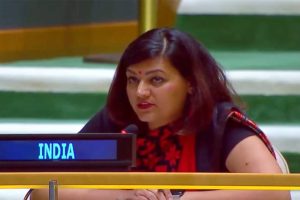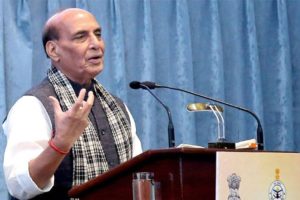India has firmly opposed further financial assistance to Pakistan from the International Monetary Fund (IMF), citing Pakistan’s continued sponsorship of cross-border terrorism and the dominant role of its military in economic governance, according to sources within the Government of India.
During the IMF’s recent review of a $1 billion Extended Fund Facility (EFF) and deliberation on a fresh $1.3 billion Resilience and Sustainability Facility (RSF) for Pakistan, India expressed strong dissent. Although the IMF’s procedural rules do not allow member states to cast a formal “no” vote, India abstained and used the opportunity to formally record its objections.
Sources emphasized that India’s abstention should not be misinterpreted as tacit approval. “India’s opposition was clearly conveyed despite procedural constraints,” one government source said.
India raised several concerns regarding Pakistan’s handling of past IMF assistance. Over the last 35 years, Pakistan has been supported by the IMF in 28 of those years—including four programs in just the past five—with little evidence of meaningful reform. India also noted that repeated bailouts have not resulted in sustainable economic change, and instead may have emboldened practices that defy international norms.
A central concern voiced by India was the role of Pakistan’s military in its economy. India cited a 2021 United Nations report which described military-linked businesses as the largest conglomerate in Pakistan. It also flagged the army’s current leadership role in Pakistan’s Special Investment Facilitation Council as an example of the military’s entrenched influence. Such control, India warned, undermines transparency, civilian oversight, and the sustainability of economic reforms.
Additionally, India expressed apprehension about the potential misuse of international financial aid to fund state-sponsored cross-border terrorism. It urged the IMF to consider the reputational risks of continuing to support countries involved in such activities.
India’s concerns were reportedly echoed by several other IMF member states. However, procedural and technical limitations constrained the institution’s ability to act decisively. “This reflects a serious gap in the governance of global financial institutions,” India said, calling for greater incorporation of moral and ethical considerations in loan approvals and other decisions.
The IMF Executive Board, which consists of 25 directors representing member countries or groups of countries, manages operational decisions including loan approvals. Unlike in the United Nations, IMF voting power is weighted by economic size, giving countries like the United States a significantly higher share. Decisions are typically made by consensus, and where a vote is necessary, the system only allows for affirmative votes or abstentions—no formal opposition is recorded.
India’s stand marks a rare but pointed intervention in IMF decision-making, aligning its economic diplomacy with its long-standing security concerns related to Pakistan.





